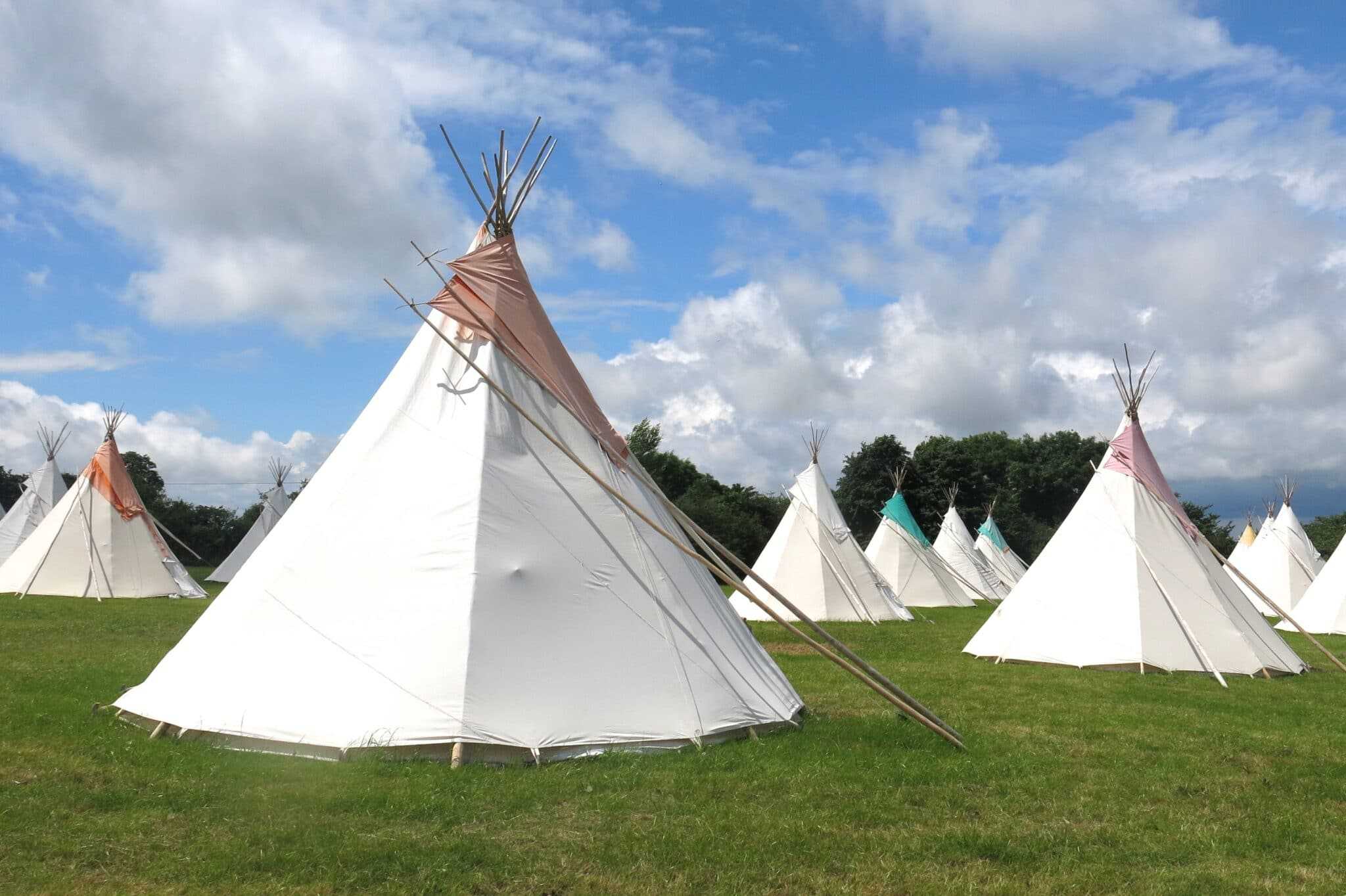A new tipi village officially opened on June 27 at Waters Edge Eco Lodge in Meadow Lake Provincial Park, a project developed by Waterhen Lake First Nation to strengthen cultural ties, stimulate tourism, and create employment opportunities in northwestern Saskatchewan.
Years in the making, the Tipi Village marks a milestone for the community, with its location on Greig Lake holding significant historical value for Waterhen families, particularly the Ernest and Morningchild families, who once lived, hunted, and trapped in the area.
“It does come full circle for us, because the land itself is a huge part of Waterhen’s history,” said Devon George, interim CEO of the Waterhen Lake First Nation Development Corporation. He noted that some elders who grew up in the area are still living today.
The development process was not without setbacks. Initially intended as a short-term project, the tipi construction faced delays due to funding hurdles, administrative challenges, and weather-related damage.
“At first it was supposed to be a 10-day project that ended up taking us 40 days,” said tourism manager Destiny Millar. “We had some 50-kilometre-hour winds, and it ended up taking out six of our tipis… now that we’ve figured out the little tricks, we haven’t had any issues whatsoever.”
Despite the delays, the site now features 10 wooden platform-based tipis equipped with electricity, according to paNOW.
Offering a seasonal glamping experience grounded in Indigenous culture, the village accommodates up to 20 guests at a time.
Millar reported that more than 50 guests have already stayed, with an additional 100 bookings extending into the fall.
The project received support from Indigenous Services Canada, Tourism Saskatchewan, the Meadow Lake Tribal Council, and the First Nation itself. The lodge was originally opened in 2012 and purchased by Waterhen Lake First Nation in 2022.
To support increased visitation, plans are underway to expand the property’s water treatment system.
George explained that capacity is currently limited to about 150 guests across the lodge, cottages, and tipis. Enhancing infrastructure will allow for future growth without overburdening water resources.
Beyond tourism revenue, the leadership sees the tipi village as an opportunity to build long-term economic benefits and career pathways for community members.
“We want to get to a point where we’re putting profits or dividends back into the community,” George said. “We have the opportunity to be a starting point for many youth in the hospitality industry.”
Waterhen Lake First Nation Chief Blaine Fiddler emphasized the project’s dual focus on honoring heritage and supporting future generations.
“When we first purchased this lodge, we knew there was historic significance from the families that lived here before us,” he said. “We want to pay homage to them, protect the land, and make sure that it’s protected for our future generations.”
The lodge operates year-round, while the tipi village runs seasonally from spring through fall. Chief Fiddler expressed hope that the venture will become both a cultural destination and a source of pride and employment for local youth.
“It’s going to create more opportunities for young people, a place to come work in the summertime,” he said.


